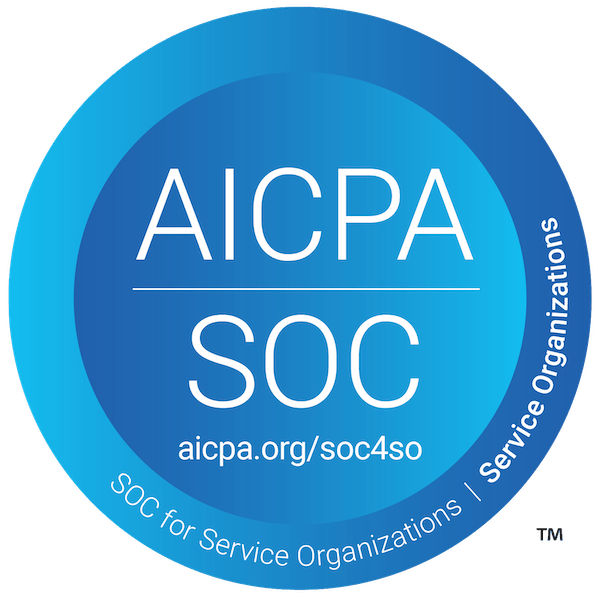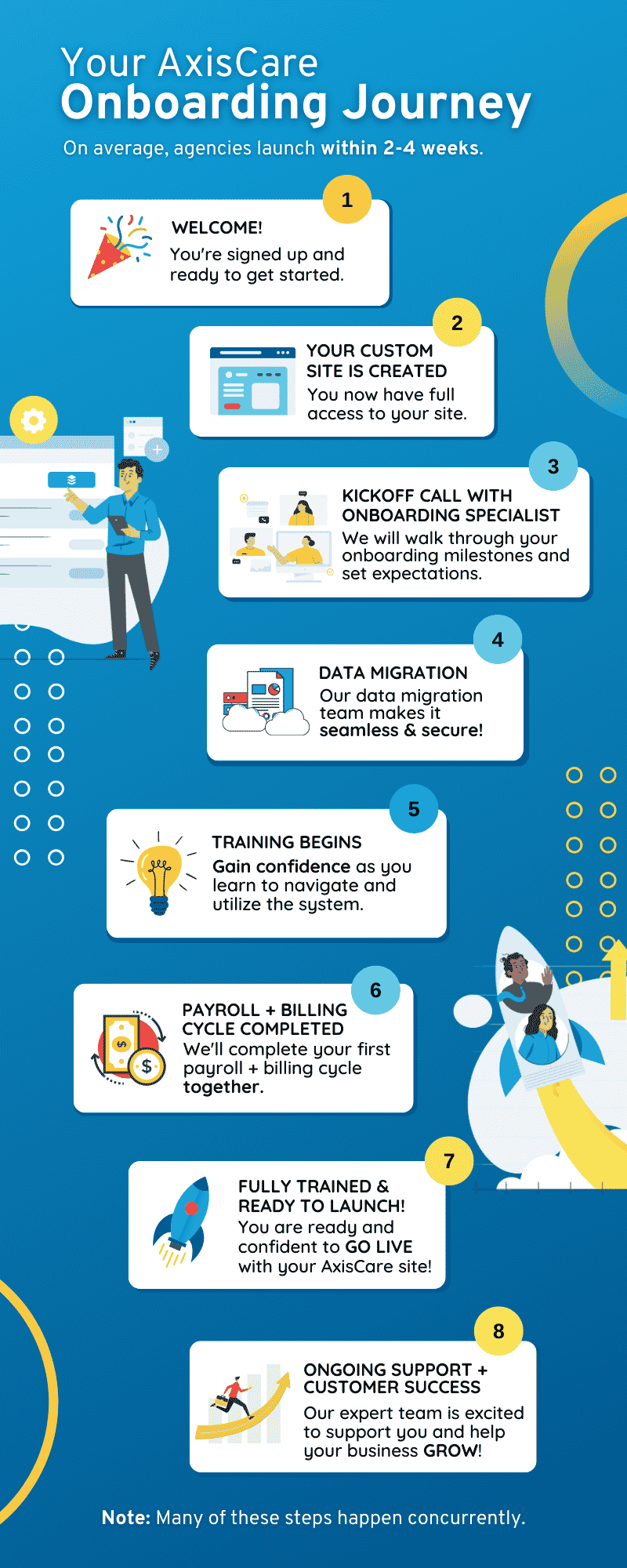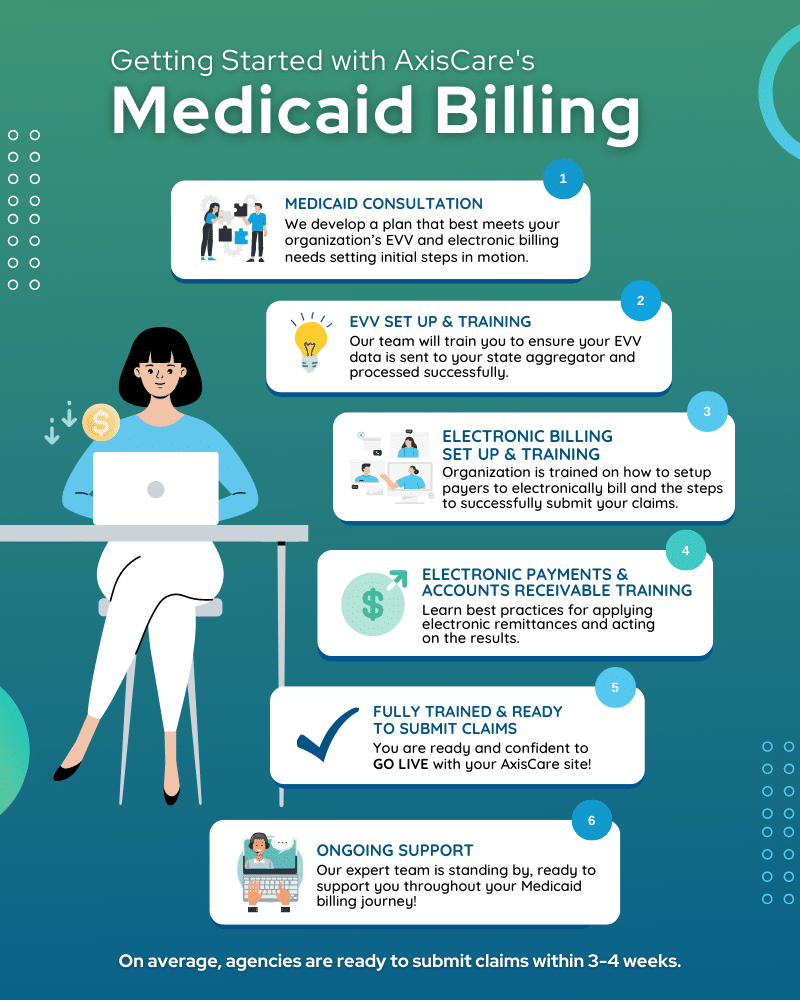For home health agencies, researching, evaluating, and ultimately choosing an Electronic Visit Verification (EVV) software provider takes valuable time and resources. Before agencies make their decision, it is crucial to verify that the chosen EVV software is compliant with health care regulations and the consequences of not adhering to them.
I. Federal & State Mandates
Though EVV is a federal mandate, individual states decide how to implement the requirement and gather data. Every state is different, which is why home health agencies should understand their local regulations in addition to the federal mandate.
Mandated Scope
The first step in understanding local regulations is to look at the mandated scope set by each state. In general, there are five models that states can choose from:
- Open Vendor: Providers can choose an EVV vendor at their own expense or use a state-sponsored partner for free. In most cases, the only stipulation is that alternative EVV solutions must integrate with the state data aggregator. For example, New Jersey Medicaid requirements for EVV list HHAeXchange and CareBridge as its state-wide aggregators.
- Provider Choice: Providers may select any vendor.
- State-Mandated External Vendor: Providers are limited to an external vendor that the state selects and funds.
- State-Mandated In-House System: States build and manage their own EVV system that all providers must use.
- Managed Care Organization (MCO) choice: States give MCOs the authority to select vendors.
Timelines
Since the 21st Century CURES Act was passed in 2016, states have built individual plans to roll out EVV requirements. In 2023, most have fully implemented EVV compliance software, while others are still phasing in requirements. For example, physical, occupational, and speech therapy services were just added to the California EVV system for Medicaid in April 2023.
Data Elements
All compliance software for healthcare systems must verify services performed and the client, date, location, provider, and start and end time of that specific service. In addition, states can add requirements for their regulatory compliance software. For example, the Iowa Medicaid requirements for EVV mandate that their MCOs collect information about when providers are late or miss a service and send alerts about these instances.
Visit Verification Methods
States may also have different approved methods of visit verification, such as GPS-based location tracking, telephony systems, or biometric identification. For example, Massachusetts-selected vendors, as well as approved alternative EVV software vendors, must leverage GPS.
Exemptions
Home Health Care Services (HHCS) or Personal Care Services (PCS) that do not require in-home visits or are 24-hour services are not subject to EVV requirements. Outside of these cases, there are limited exemptions for other services provided in areas with unreliable cell service or during emergencies.
II. Compliant Healthcare Regulations
In addition to federal and state laws designated for EVV, software used for patient care must comply with HIPAA and other regulations to ensure the security and privacy of client information. Every feature included in the compliance software, from electronic documentation to messaging, should be compliant.
Health Insurance Portability and Accountability Act (HIPAA)
HIPAA is a federal law designed to protect the confidentiality of protected health information (PHI) provided to doctors, hospitals, and other health care providers. This standard gives clients rights and control over their health information and establishes guidelines for the electronic exchange of PHI.
Protected Health Information (PHI)
Under HIPAA regulations, PHI refers to medical records and other individually identifiable patient health information created, received, or transmitted by a health care service provider. EVV software is subject to HIPAA privacy and security protections, so before choosing a solution, agencies should ensure that the software protects the identity of clients, services delivered, and documentation by technical security that meets HIPAA standards.
21st Century Cures Act
The 21st Century Cures Act is a bipartisan law that aims to give patients better access to care, advance medical innovation, and raise the standard for passing electronic health information between providers. Home health agencies must implement an approved EVV method for Medicaid-funded personal care to comply with the act.
III. Provider Compliance Documentation
To ensure that an EVV software solution is compliant, agencies can request documentation that demonstrates adherence to EVV regulations. Software providers should be able to provide whitepapers, compliance method documentation, or technical specifications about their platform.
IV. Integrate with Systems & Platforms
EVV software alone can improve and ensure agency compliance. However, the benefits increase when the software can integrate with other systems and platforms used within the organization.
Electronic Health Records (EHRs)
To track client history, care plans, medications, test results, and more, agencies use EHRs instead of paper medical charts. Integration with HIPAA compliance software ensures that visit verification data and additional documentation automatically populate the EHRs.
Billing and Payroll
Manually transferring visit verification data and caregiver records from EVV software to a billing and payroll system can invite errors that cause claim rejections, interrupted cash flow, and late paychecks. Integrating the two systems can decrease these risks and improve in-house workflows.
Scheduling & Time-Tracking
Caregiver availability and activity can be transferred from the compliance software, providing real-time visibility and enhancing caregiver management and scheduling accuracy. To simplify this step, agencies can choose an EVV platform that combines scheduling features into the software.
Quality Management Software
Quality management software is necessary for agencies to ensure excellent patient care. EVV software can seamlessly integrate with quality management systems, making audits and compliance-related incident investigations easier.
Messaging Platforms
Healthcare messaging platforms typically use encryption and secure login to comply with HIPAA regulations. Integrating EVV with secure messaging systems enables timely and compliant communication with patients.
V. Noncompliance & Potential Penalties
Most penalties and consequences for EVV noncompliance happen at the state level and vary in severity. As states refine their EVV regulations, penalties evolve each year.
Fines
Agencies that fail to comply with EVV requirements are at risk of fines from their state or payer. The amount can vary based on the severity of the violation, the number of occurrences, and the impact on client care or program integrity.
Loss of Reimbursement
Noncompliance with EVV regulations can lead to denied Medicaid reimbursement for services provided, including a 1% reduction in Federal Medical Assistance Percentage. This reduction in federal contribution to Medicare and Medicaid claims forces states to pay more.
Suspension or Termination
Non-compliant providers may face suspension or termination of their enrollment in Medicaid or other government healthcare programs. If noncompliance continues, agencies can suffer long-term consequences, including exclusion from government-funded healthcare programs altogether.
Damaged Reputation
Noncompliance with EVV regulations can tarnish a provider’s reputation and reflect their lack of commitment to accountability and quality service. This can undermine the confidence of caregivers and clients, leading to churn or loss of business.
VI. Documenting & Recordkeeping
EVV regulations specify required documentation including compliance and visit verification reports. Before agencies choose regulatory compliance software, they should assess whether the solution has the capability to generate this documentation. These reports are vital in maintaining transparency and accuracy for reporting and auditing purposes.
Stay Compliant, Stay With AxisCare
In the home health industry, compliance is necessary for quality patient outcomes and overall business health. Request a live demo with one of our home care experts and see how choosing AxisCare can help your agency achieve compliant, effective, and excellent care.











